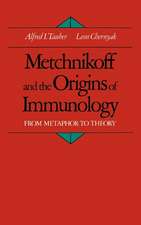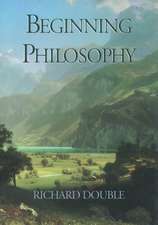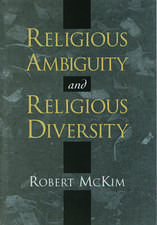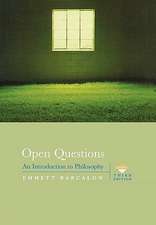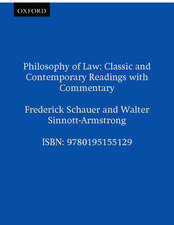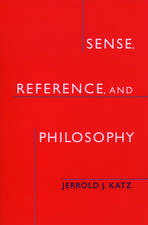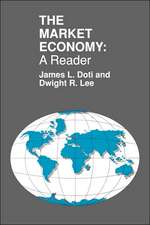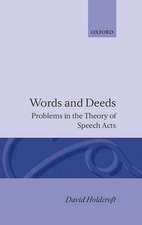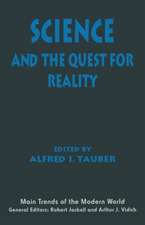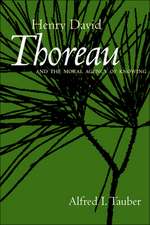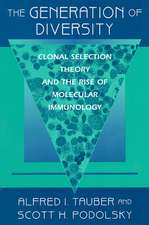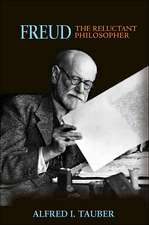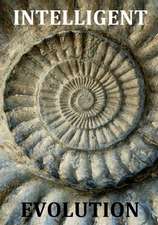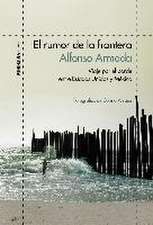Immunity: The Evolution of an Idea
Autor Alfred I. Tauberen Limba Engleză Paperback – 16 aug 2018
| Toate formatele și edițiile | Preț | Express |
|---|---|---|
| Paperback (1) | 282.24 lei 32-37 zile | |
| Oxford University Press – 16 aug 2018 | 282.24 lei 32-37 zile | |
| Hardback (1) | 570.43 lei 32-37 zile | |
| Oxford University Press – 9 mar 2017 | 570.43 lei 32-37 zile |
Preț: 282.24 lei
Preț vechi: 324.15 lei
-13% Nou
Puncte Express: 423
Preț estimativ în valută:
54.01€ • 57.75$ • 45.03£
54.01€ • 57.75$ • 45.03£
Carte tipărită la comandă
Livrare economică 07-12 aprilie
Preluare comenzi: 021 569.72.76
Specificații
ISBN-13: 9780190914196
ISBN-10: 019091419X
Pagini: 324
Dimensiuni: 155 x 231 x 20 mm
Greutate: 0.5 kg
Editura: Oxford University Press
Colecția OUP USA
Locul publicării:New York, United States
ISBN-10: 019091419X
Pagini: 324
Dimensiuni: 155 x 231 x 20 mm
Greutate: 0.5 kg
Editura: Oxford University Press
Colecția OUP USA
Locul publicării:New York, United States
Recenzii
no one can deny the unique pleasure to be gained in revisiting an old haunt or re-reading a favourite book. The latter is the type of pleasure in store for those readers of Immunity: the Evolution of an Idea who are familiar with author Alfred Tauber's formidable corpus of work on the philosophy and history of immunology. ... All in all ... Tauber's capstone is an admirable synthesis of his years of thinking about and engaging with the philosophy of one of the core tenets of immunology.
Alfred Tauber updates discussions on some of the central questions of immunology in a most embracing manner, discussing general concepts and theories in their historical context, considering their origin and evolution, while bringing forth novel ideas and unexplored relationships between notions that, in one way or another, have been around, often thanks to Tauber's writings. This is an excellent piece of scholarship, which, while theoretical, is attentive to empirical data and views, and makes a very significant contribution to the field.
Fred Tauber has provided a stimulating new interpretation of the development of immunology that shows how the discipline has begun to be embraced by biology's recent ecological turn. The result is a contextual view of immune cognition mediated by a dialectical interaction between organism and environment. This book will be of compelling interest to a wide audience including theoretical biologists and philosophers of science.
Tauber, in his past books, taught us about the people, the ideas and the experimental pursuits that created the field of immunology. Today's applications of immunity to cancer, vaccination and cell therapies beget a new immunology. Tauber, in this book, ushers us into a new way of thinking.
Tauber acknowledges and dissects the philosophical basis hidden in immunology, dealing with its ontological and epistemological overtones, originally highlighted by Metchnikoff and used by Burnet...It is required reading for practicing immunologists, historians, philosophers and sociologists of science. Adding to its richness, the book includes an abundant and properly chosen bibliography. Tauber is the most valid commentator in immunology today.
Drawing on extensive knowledge of historical, philosophical and scientific literature, [the book] abolishes the simplistic, militaristic vision of the immune system and establishes a new paradigm for how we think about our interactions with the microbial world. This fascinating book will certainly become an important reference point for generations of researchers and theoreticians interested in immunology fundamentals.
Alfred Tauber updates discussions on some of the central questions of immunology in a most embracing manner, discussing general concepts and theories in their historical context, considering their origin and evolution, while bringing forth novel ideas and unexplored relationships between notions that, in one way or another, have been around, often thanks to Tauber's writings. This is an excellent piece of scholarship, which, while theoretical, is attentive to empirical data and views, and makes a very significant contribution to the field.
Fred Tauber has provided a stimulating new interpretation of the development of immunology that shows how the discipline has begun to be embraced by biology's recent ecological turn. The result is a contextual view of immune cognition mediated by a dialectical interaction between organism and environment. This book will be of compelling interest to a wide audience including theoretical biologists and philosophers of science.
Tauber, in his past books, taught us about the people, the ideas and the experimental pursuits that created the field of immunology. Today's applications of immunity to cancer, vaccination and cell therapies beget a new immunology. Tauber, in this book, ushers us into a new way of thinking.
Tauber acknowledges and dissects the philosophical basis hidden in immunology, dealing with its ontological and epistemological overtones, originally highlighted by Metchnikoff and used by Burnet...It is required reading for practicing immunologists, historians, philosophers and sociologists of science. Adding to its richness, the book includes an abundant and properly chosen bibliography. Tauber is the most valid commentator in immunology today.
Drawing on extensive knowledge of historical, philosophical and scientific literature, [the book] abolishes the simplistic, militaristic vision of the immune system and establishes a new paradigm for how we think about our interactions with the microbial world. This fascinating book will certainly become an important reference point for generations of researchers and theoreticians interested in immunology fundamentals.
Notă biografică
Alfred I. Tauber is Professor of Philosophy, Emeritus and Zoltan Kohn Professor of Medicine, Emeritus at Boston University, where he served as Director of the Center for Philosophy and History of Science from 1993 to 2010. Author of The Immune Self (Cambridge 1994) and co-author of Metchnikoff and the Origins of Immunology (Oxford 1991) and the Generation of Diversity (Harvard 1997), he has also published extensively in ethics and science studies.

